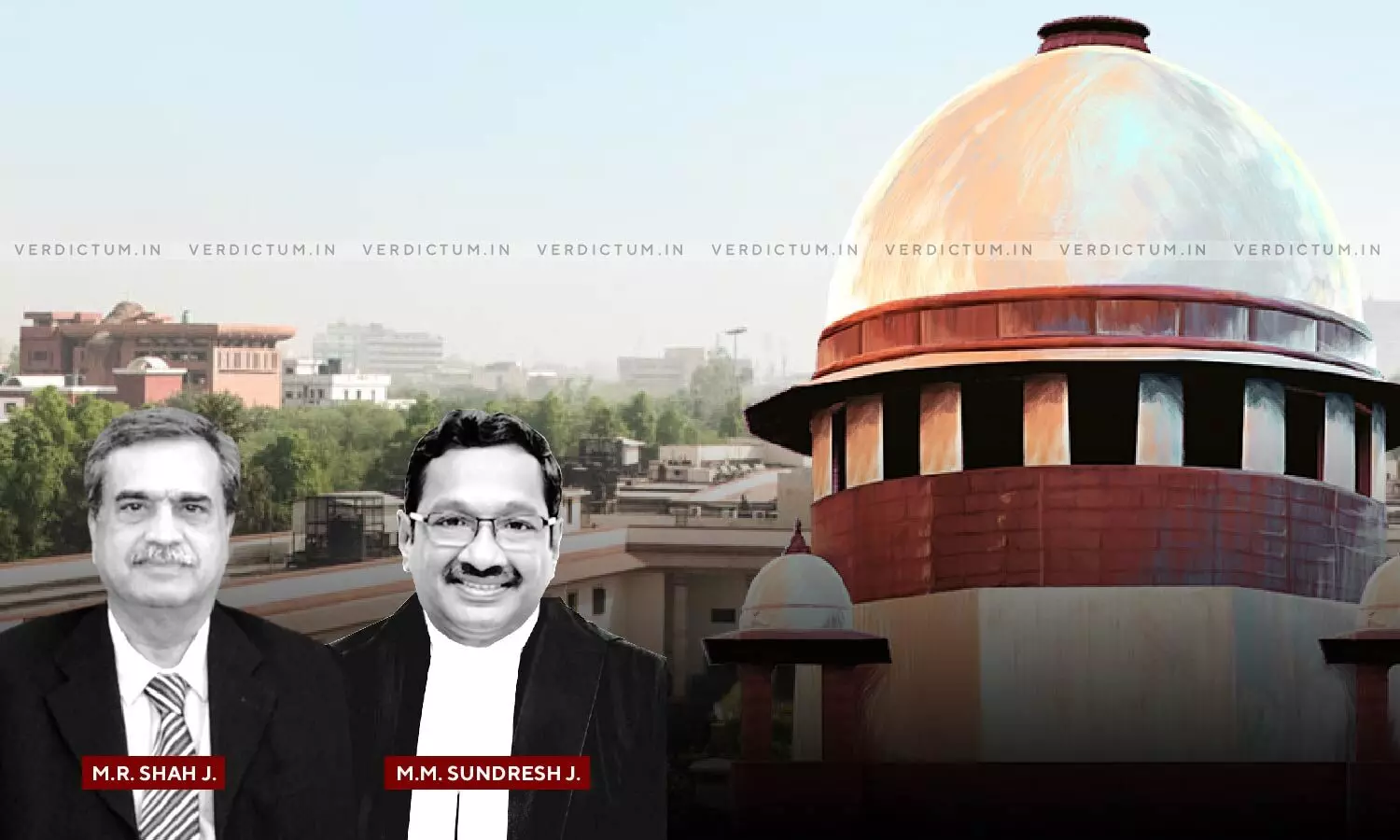
Tenant Liable To Pay Compensation At Same Rate At Which Landlord Would Earn Rent If Premises Was Vacated & Let Out- SC Reiterates
 |
|The Supreme Court has reiterated that from the date of the decree of eviction, the tenant is liable to pay compensation at the same rate at which the landlord would have earned rent if the premises were vacated by the tenant and let out.
The Bench of Justice M.R. Shah and Justice MM Sundresh placed reliance on Atma Ram Properties (P) Ltd. Vs. Federal Motors (P) Ltd., (2005) 1 SCC 705 wherein it was observed that from the date of the decree of eviction, the tenant is liable to pay mesne profits or compensation for use and occupation of the premises at the same rate at which the landlord would have been able to let out the premises and earn rent if the tenant would have vacated the premises.
In this case, the High Court admitted the revision application preferred by the tenant, who was aggrieved by the eviction decree, the High Court directed the Tenant to deposit Rs.2,50,000/- per month towards compensation as a condition of stay. The High Court for determining the amount considered the amount paid by the purchaser (Sumer Corporation) of the property in question which lead to the corporation challenging the order of the High Court before the Apex Court.
Senior Advocate C.U. Singh appeared on behalf of the Appellant and submitted that as per the settled position of law, the valuation of the property on the date of decree can be the relevant consideration for the purpose of determining the monthly compensation and also argued that market value of the property at which the lessor and/or its subsequent purchaser acquired the property could not be the basis for fixing the monthly compensation.
Senior Advocate Shekhar Naphade appeared on behalf of the contesting respondent- original revisionist and submitted that the decree has been passed with respect to the land and not with respect to the superstructure and that the compensation, which may be awarded shall be reasonable and may not be excessive.
The Apex Court disagreed with the method adopted by the High Court and relied heavily upon Atma Ram Properties (P) Ltd. Vs. Federal Motors (P) Ltd., (2005) 1 SCC 705 and observed that "the approach adopted by the High Court is not a sound principle of law to form the basis for determining the compensation in this case. If the approach adopted by the High Court is accepted and/or approved, in a given case, it may happen that the lessor might have purchased the property forty years back and/or long back and if the said approach is considered and thereafter the monthly compensation is determined, the same cannot be said to be a reasonable compensation"
The Apex Court further observed the High Court was required to determine the compensation at the same rate at which the landlord would have been able to let out the premises and earn rent if the tenant would have vacated the premises.
The Apex Court remitted back the matter to the High Court and observed that in a revision/appeal preferred by the tenant, who has suffered an eviction decree, the appellate/revisional court while staying the eviction decree can direct the tenant to pay the compensation for use and occupation of the tenancy premises upon the contractual rate of rent and such compensation for use and occupation of the premises would be at the same rate at which the landlord would have been able to let out the premises and earn rent if the tenant would have vacated the premises.
Accordingly, the Apex Court quashed and set aside the judgment and order passed by the High Court determining the compensation for the use and occupation of the premises by the tenant @ Rs. 2,50,000/- per month and remitted the matter back to the High Court to determine the compensation for the use and occupation of the premises in question by the tenant/lessee afresh and partly allowed the appeal.
Cause Title- Sumer Corporation Vs. Vijay Anant Gangan & Ors
Click here to read/download the Judgment